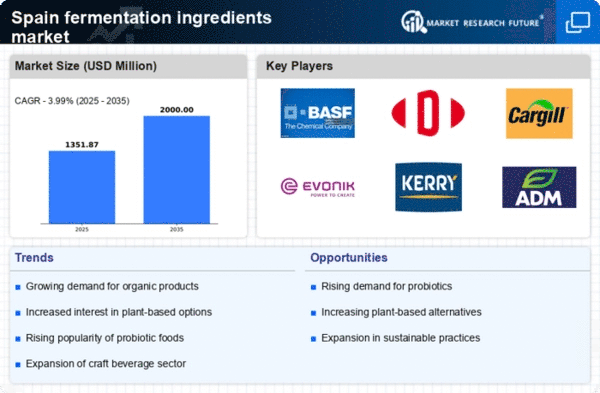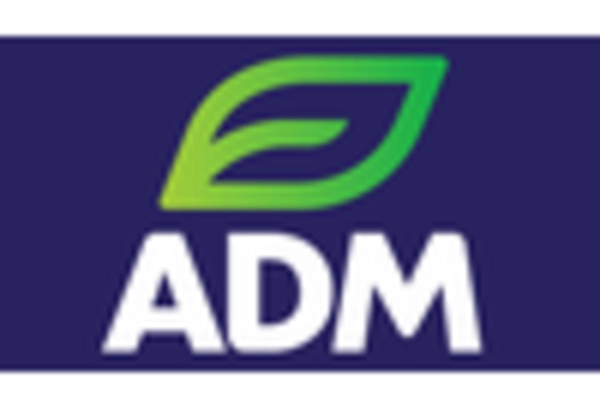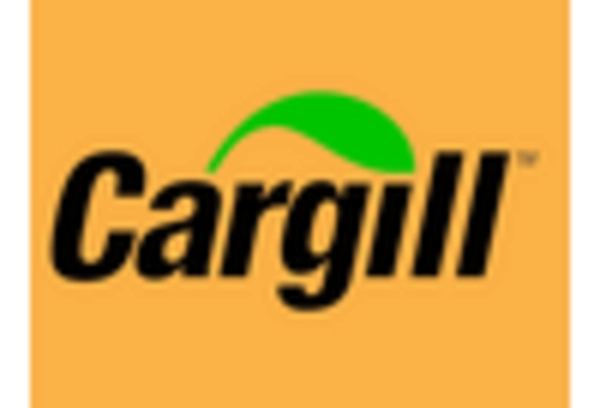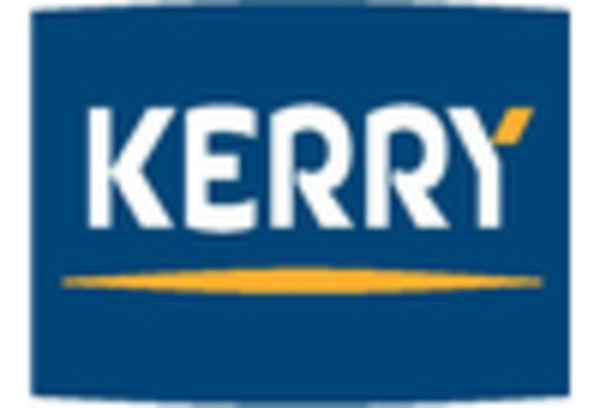Market Share
Spain Fermentation Ingredients Market Share Analysis
In the bustling landscape of Spain's fermentation ingredients market, companies employ various strategies to secure their positions and gain a competitive edge. One predominant approach is differentiation, where companies distinguish their offerings from competitors through unique features or attributes. For instance, some companies might focus on producing high-quality ingredients with specific certifications, appealing to consumers seeking premium products. Others may differentiate by offering a wide range of fermentation ingredients tailored to diverse industries, from food and beverage to pharmaceuticals, catering to the varied needs of customers.
Another strategy involves cost leadership, where companies aim to become the lowest-cost producer in the market. By optimizing production processes, sourcing raw materials efficiently, and achieving economies of scale, these companies can offer competitive prices without compromising quality. This approach is particularly attractive in a price-sensitive market like Spain, where consumers are often inclined to opt for affordable options. Moreover, cost leadership can also help companies expand their market reach by attracting budget-conscious consumers and penetrating new segments.
Furthermore, some companies opt for niche positioning, targeting specific market segments with specialized fermentation ingredients. By focusing on niche markets such as organic, non-GMO, or allergen-free ingredients, companies can carve out a unique space for themselves and build a loyal customer base. This strategy allows companies to command higher prices due to the perceived value of niche products and reduces direct competition since few players may operate in the same segment. Moreover, catering to niche markets enables companies to stay agile and responsive to emerging trends and consumer preferences.
In addition to differentiation and cost leadership, companies in the Spain fermentation ingredients market also leverage innovation as a key positioning strategy. By continuously investing in research and development, companies can introduce novel ingredients with enhanced functionalities or improved sustainability profiles. Innovation not only allows companies to differentiate themselves but also enables them to address evolving consumer demands, such as clean label ingredients or plant-based alternatives. Moreover, innovative products often command premium prices and garner attention in the market, contributing to brand reputation and market share growth.
Collaboration and partnerships also play a significant role in market share positioning strategies. Companies may form strategic alliances with suppliers, distributors, or research institutions to strengthen their market presence and access additional resources. Collaborative efforts can facilitate market expansion, facilitate technology transfer, or enhance product development capabilities. By leveraging the expertise and resources of partners, companies can accelerate growth and gain a competitive advantage in the dynamic fermentation ingredients market.
Furthermore, branding and marketing efforts are crucial for positioning companies effectively in the Spain fermentation ingredients market. A strong brand identity helps companies differentiate themselves, build trust with consumers, and command premium prices. Effective marketing campaigns that highlight the unique value propositions of products and communicate with target audiences can attract attention and drive sales. Additionally, companies may engage in educational initiatives to raise awareness about the benefits of fermentation ingredients and foster consumer understanding and appreciation.


















Leave a Comment